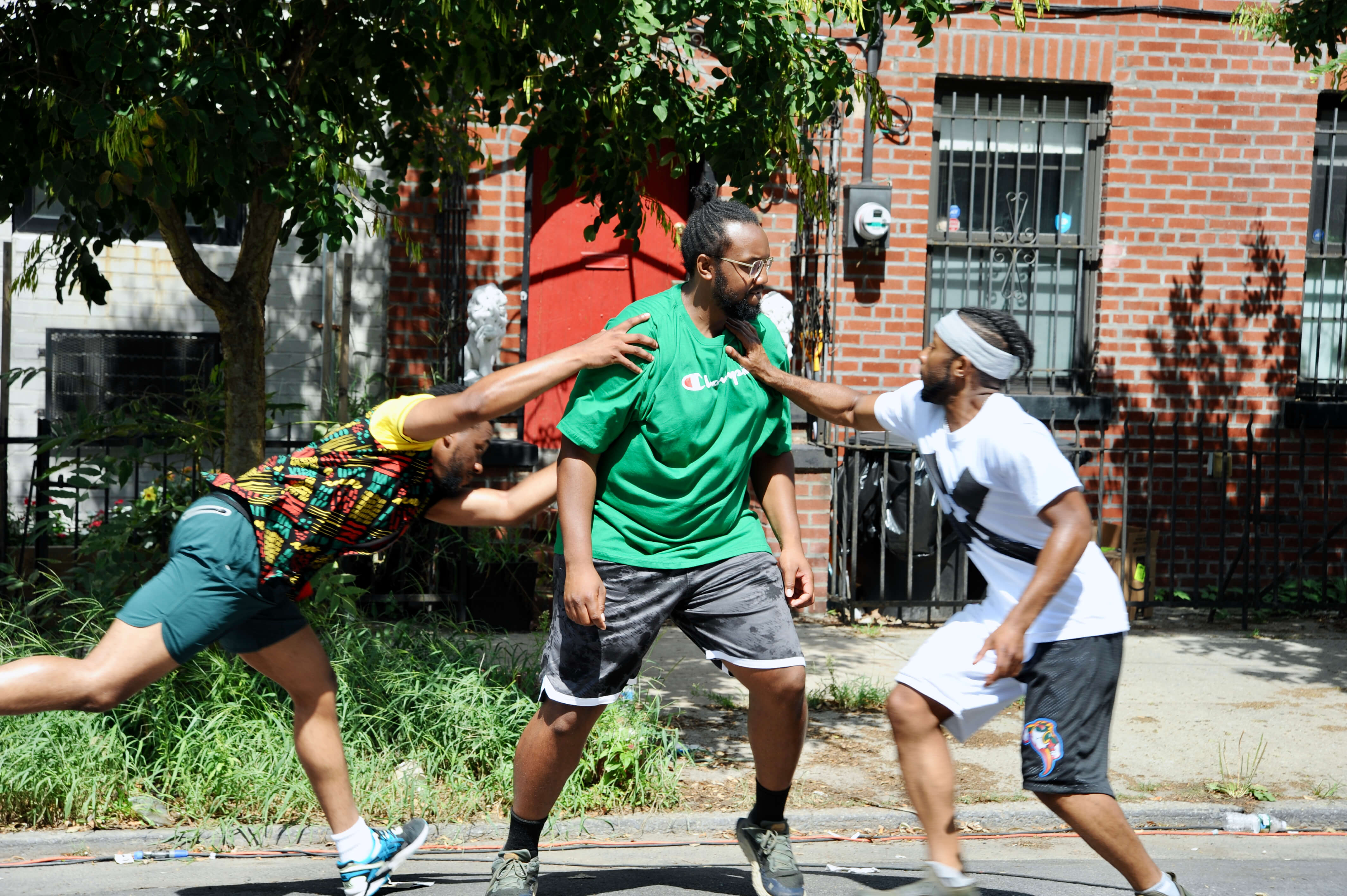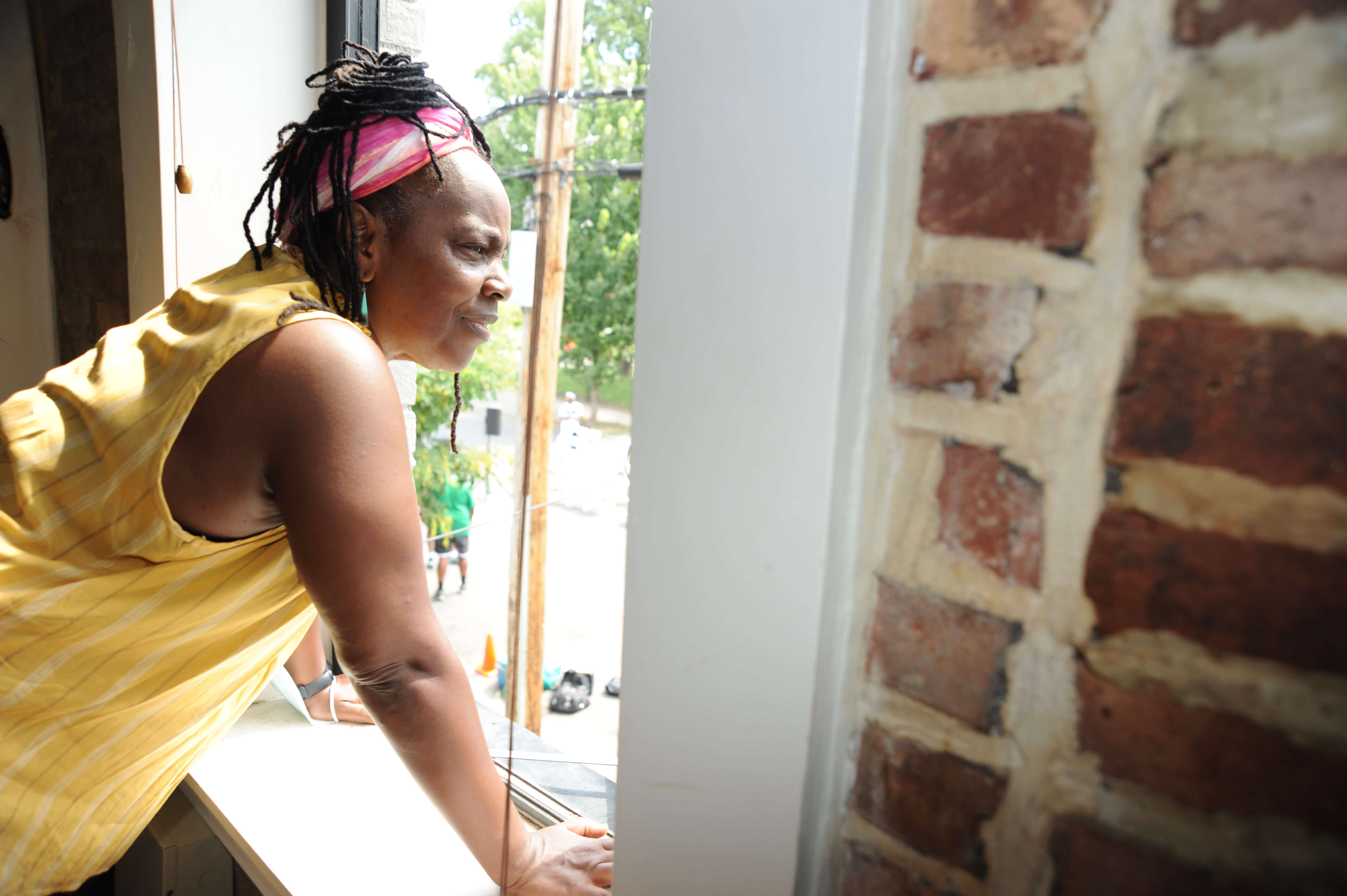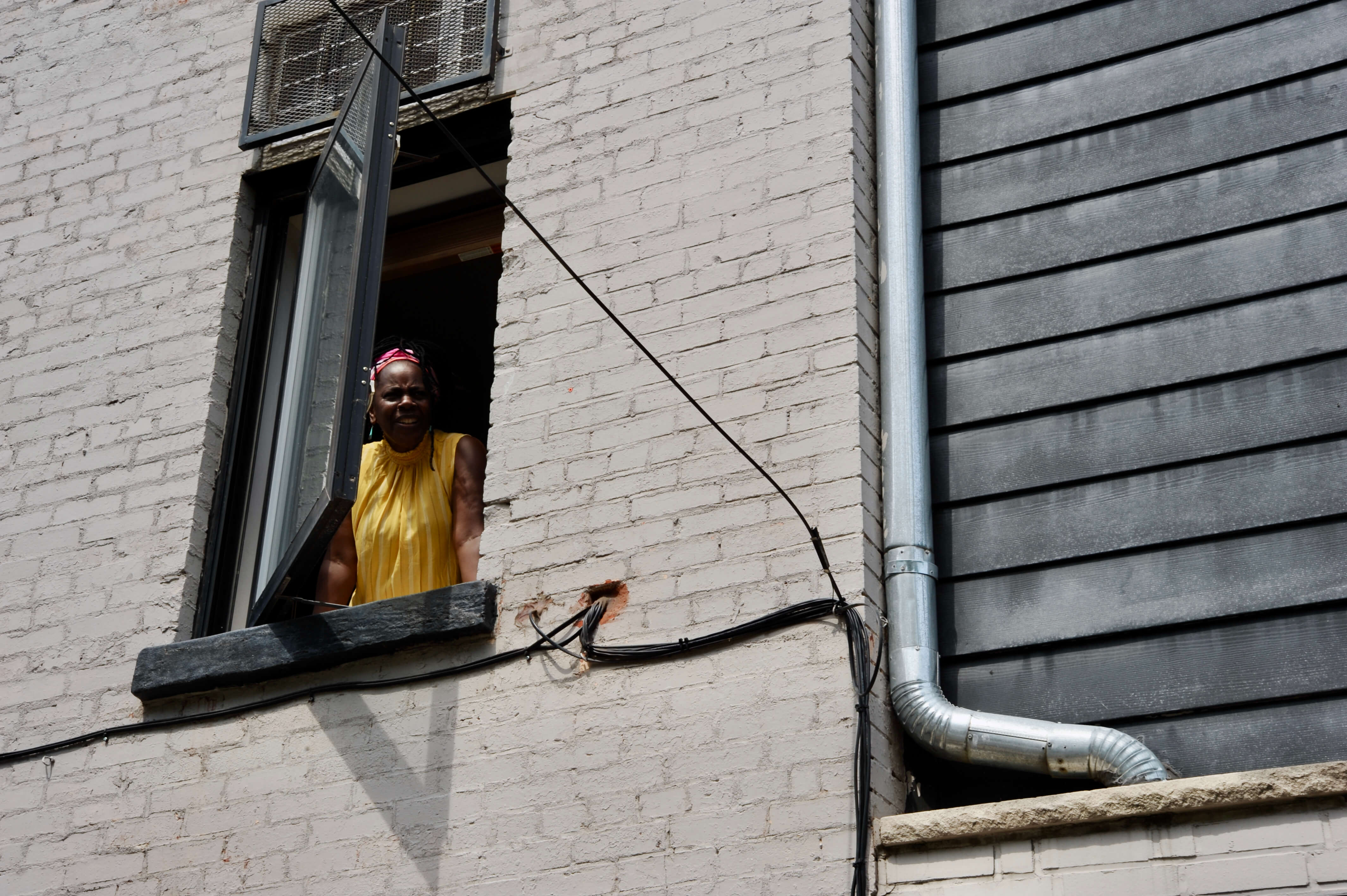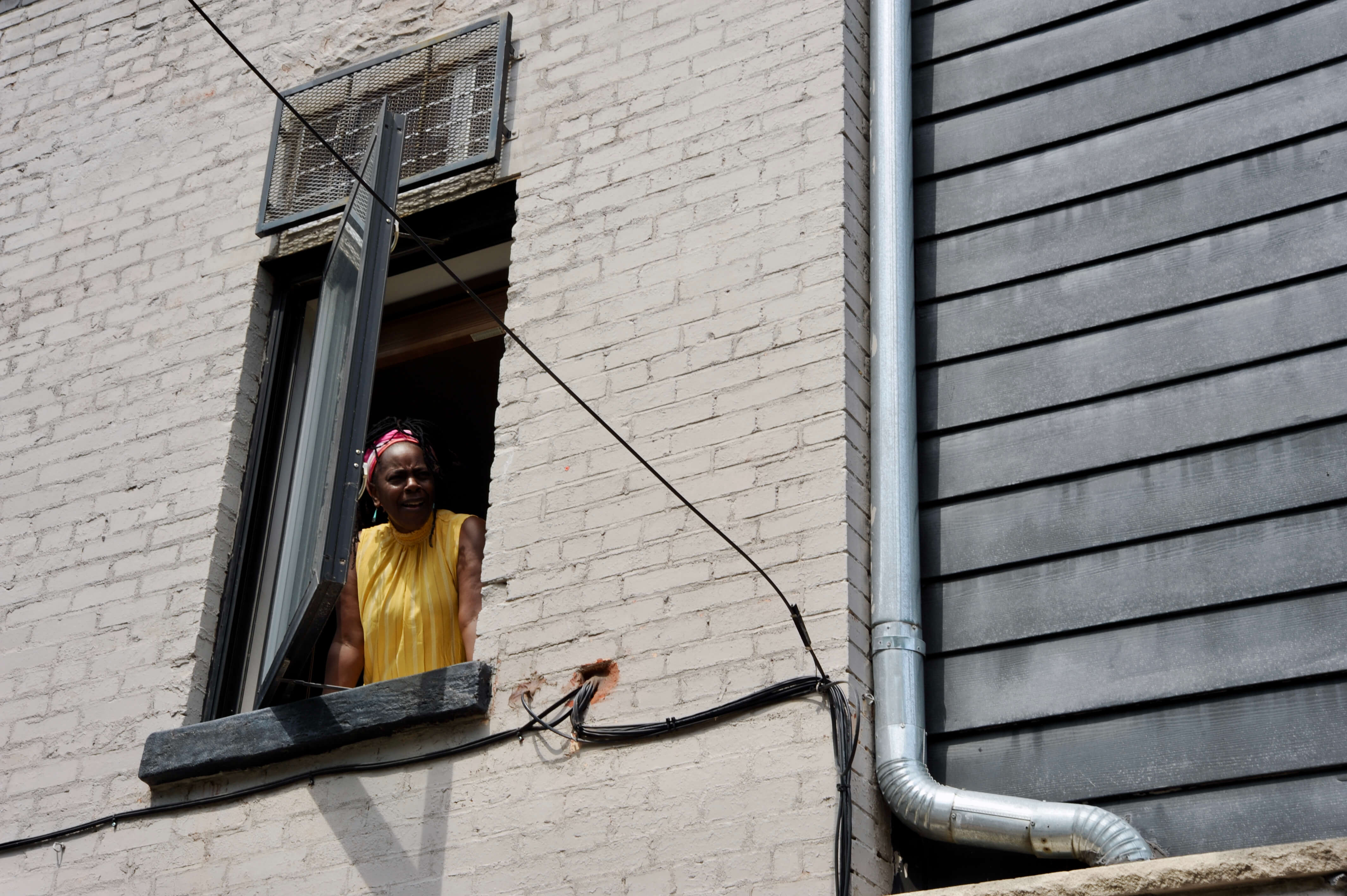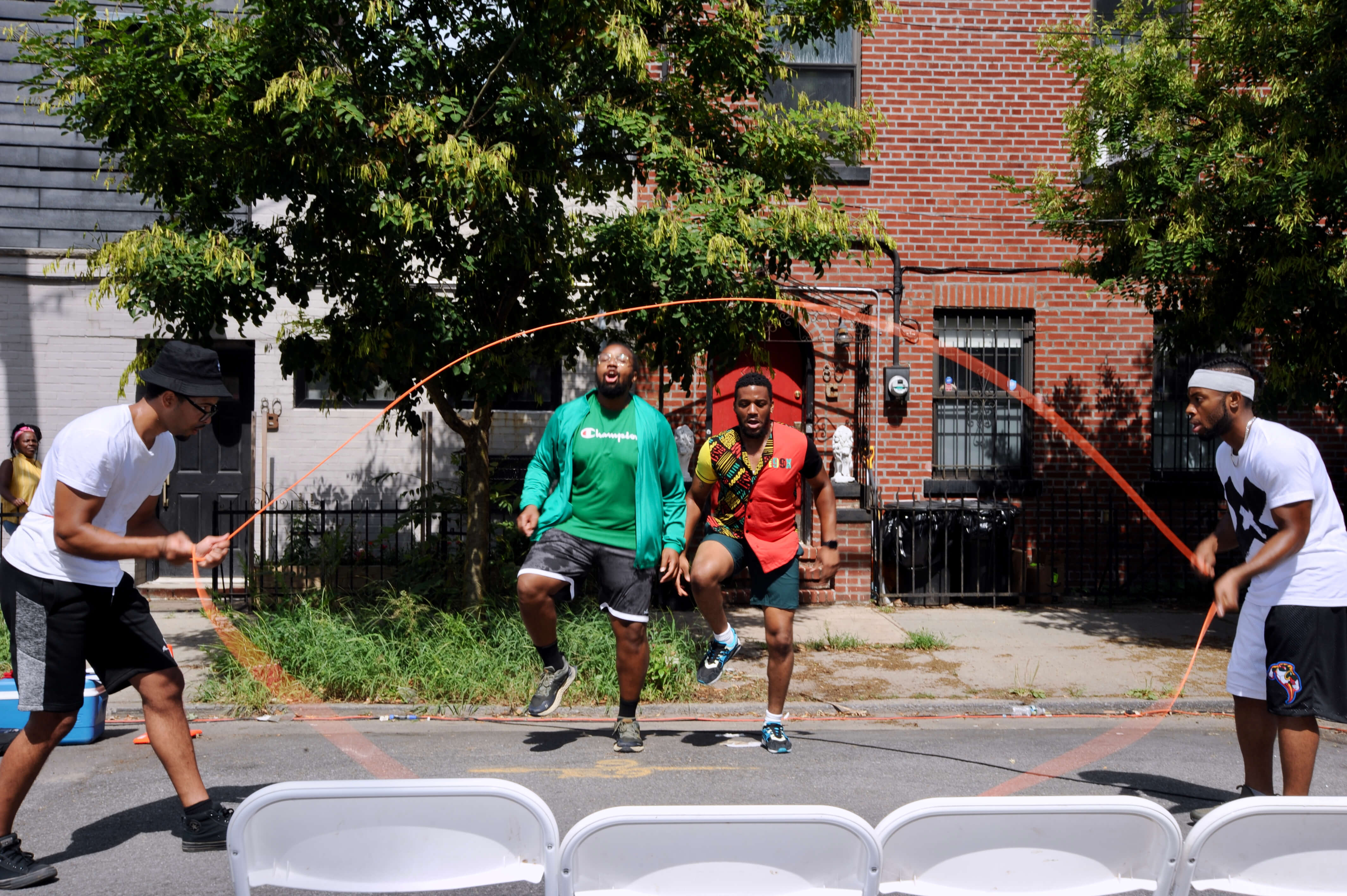Dutch Kings delivered a stunning preview performance this Saturday, August 15th in Red Hook, Brooklyn. The opening performance is set for Saturday, August 21st, 11AM and then 3PM. There will be another two shows on August 28th. Like other plays produced by Brave New World Theater, the presentation space is location specific. In the case of Dutch Kings, it is being performed on the street. For people who live in the area around Coffey Park in Red Hook, there is no admission fee.
About a week before seeing the play I spoke to the writer, Kristen I. Spencer.
“I read that you’re a choreo-dramatist? Can you explain that?”
“I grew up in dance, dancing at home and in my church. It’s always been a part of my life. But when I started to take my writing more seriously, as an undergrad, I began to think more about the connection of writing to movement and rhythm,” said Kristen.
“What inspired you to write this play?”
“The language of the play came from what I would hear from my father and his friends. They would joke around and tease each other. And I also wanted to show that Black people hold a lot of kinds of stories, not just traumatic ones. My dad and his friends, of course, had a range of personalities. They could be tough, but they were funny, too. I wanted to write a play that captured and honored that.”
The play opens with the main character, Ishmael, preparing for the Dutch Kings Double Dutch competition. Double Dutch is a game in which two long jump ropes spin in opposite directions while one or more players jump over the ropes simultaneously. It is believed to have originated among Dutch immigrants in New York City. In the early 1980s, Double Dutch was strongly associated with New York hip hop culture. It has also been recognized as an element of the genre by notable MCs such as KRS-One.
Played by Anthony Holiday, the character Ishmael is a mix of sweet and tough. We learn that much of his tough talk is self-defensive. Despite Ishmael’s descriptions of the heaviness of violence in the neighborhood, he has an intoxicating charm. His smile is as big as a city block.
When his best friend, Nazir, shows up to practice, they start making fun of each other, cracking yo momma jokes and talking crap. Like me and my friends used to do on the park benches and in the hallways of the Ravenswood Projects in Queens. Like we still do (in our fifties). As in Dutch Kings, it was a way of expressing creativity, using inventive and funny language without being directly confrontational. It was a way to mark your territory. To make a statement. Those who excelled at this kind of rap were admired.
Stay ready so you don’t have to get ready is one of the themes of the play, suggesting that things can happen at any time, things out of your control. This was even evidenced in the performance of the play. It was a sweltering hot day. The sun poured down thick and strong. Some people, like me, sat in the shade. As the actor’s dialog took place, a Mister Softee ice-cream truck roared up the street. It could be heard blocks away, announcing its arrival, like a calliope. Then, out of nowhere, there was a minor motorcycle accident. All this while the play was going on. To the credit of the actors, they continued without being discernibly distracted, proving Stay ready so you don’t have to get ready really sunk into their bones.
From the second floor of a house on Richard Street (where the play took place), the character Jocelyn, played by Teri Brown, calls from the window. She’s like the voice of truth. Of knowledge. A soothsayer. Ironically, my mother used to call out to us from the third floor of our building to come home for dinner. We’d be playing basketball or handball in The Department of Sanitation Park across 21st street. The whole park stopped when my mother yelled from the window. Like ants, my brother and I marched home to dinner after hearing her call.
Photo credits to Craig A. Grant
But Jocelyn doesn’t yell. Her words are enough. Having decided to do the Dutch Kings competition in a new location from the previous year, she warns the boys that they’ll have to anoint the ground to make it sacred. But, according to Jocelyn, only Leroy knows exactly how to anoint the ground. She says you have to all pray together over the ground thinking the same thing at the same time. They have to make the unholy holy. In the end, however, Jocelyn says that she can’t give them direction because finding holy ground can’t be taught. It can only be found.
Since Leroy is out of town, they proceed without the proper anointing ceremony.
Ishmael offers an incantation he’ll repeat again in the play, as if making a magical offering to the ground. To consecrate it. Hitting the beat box low and dirty while Kenny drives his fist into the dirt. Then Brian started to make a rhythm, spit poetics, stuff we’d never talk about outside the playground. All this while Jocelyn prayed over it.
And so the competition begins without the ground being made holy the way Leroy described.
We then meet the opposition team, the Uptownies, played by Travis Raeburn (Kenny) and Dexter McKinney, who substituted for Karl Green (Brian) in the preview. Unlike Team Blockhead, The Uptownies no longer live in the neighborhood. There are those who leave and those who stay in the neighborhood. The Uptownies are slicker, better dressed. Kenny wears fancy clothes, making fun of Nazir’s hand-me-downs that fit too tightly.
The Double Dutch action is simulated by the opposition team holding the ropes while the actors move and dance, making the performance comedic. They’re not actually jumping over the ropes, in other words. The actors hop on one foot, smiling, gesturing and making faces, making the audience laugh hysterically. In these comic competition scenes, there are also some hard-hitting words delivered by Kenny and Ishmael, rapping about the vulnerability of the people in the neighborhood and fear of the police. In all this joking, there is much that is serious.
Dutch Kings is a beautifully written and terrifically acted play. It is chock-full of the language of the street. A language that can be harsh, comical, emotionally moving and even sometimes foul. But it is a language that is always poetic. We believe the actors and their words. And there is also magic. Kristen I. Spencer has created a familiar world on a tiny street that manages to also exist on an epic scale. Everything on this earth that matters revolves around the sound of Dutch, like the beat of the heart.
Brave New World Repertory Theater & ticketing information
Mike Fiorito
https://www.pw.org/directory/writers/mike_fiorito

